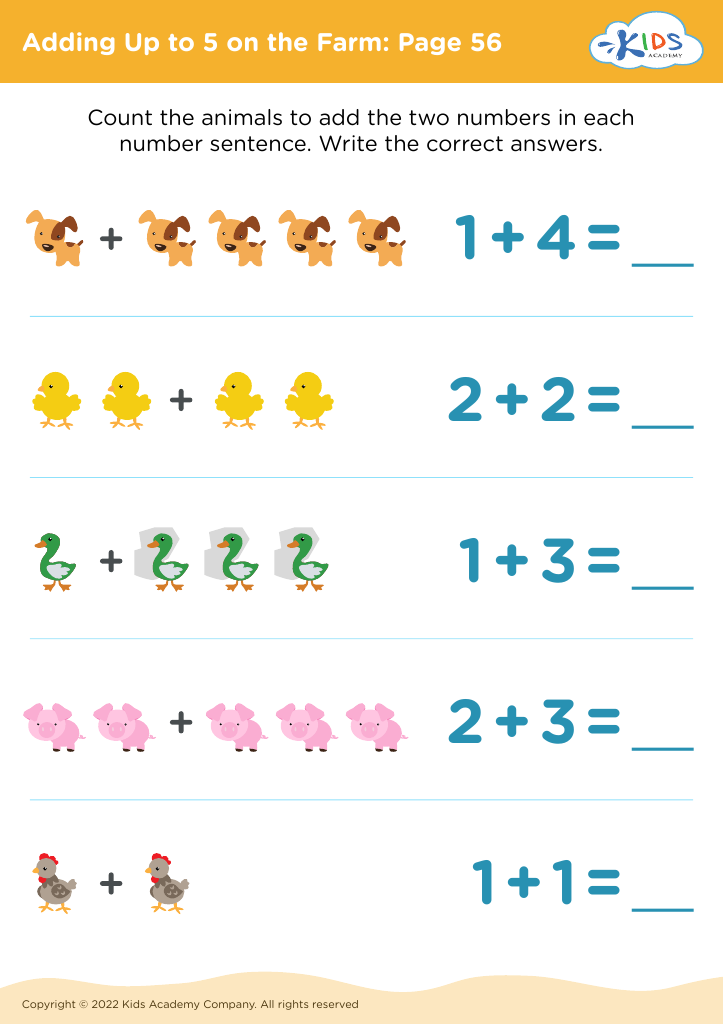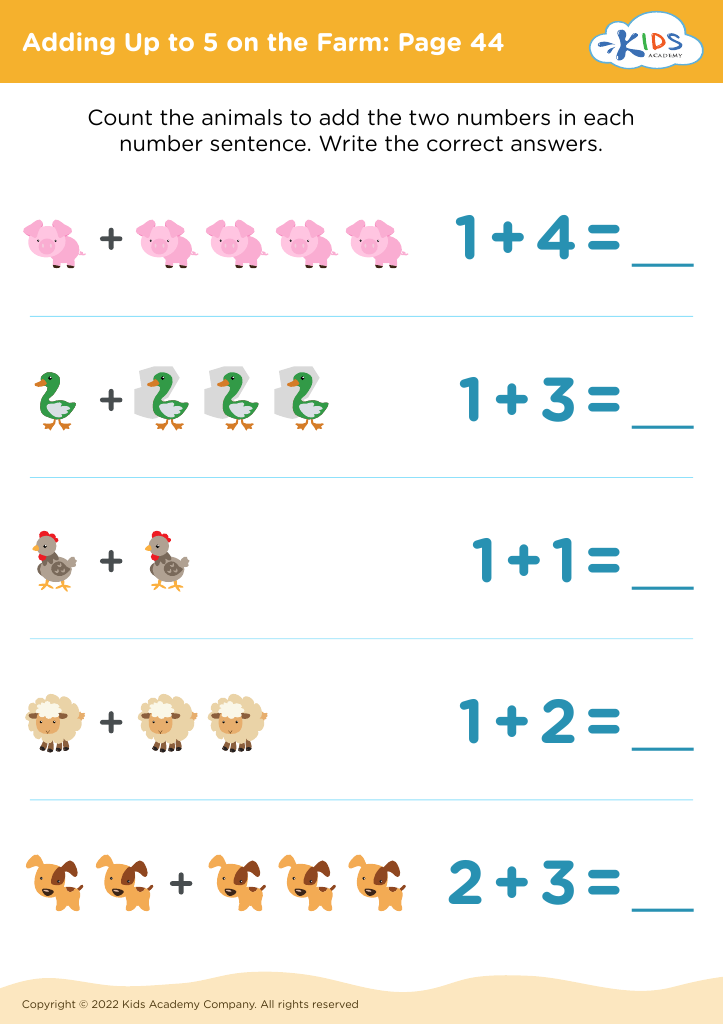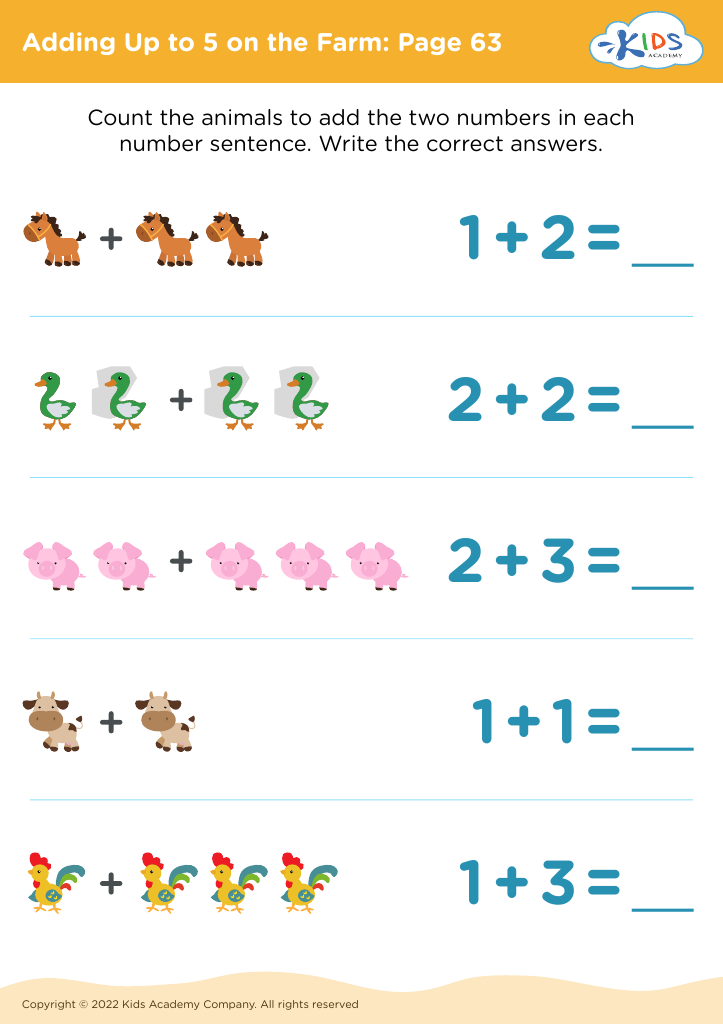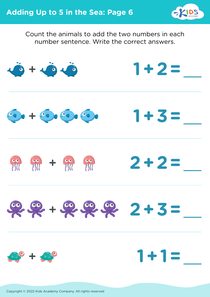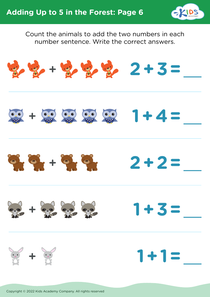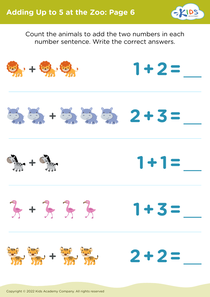Problem Solving Adding on the Farm Worksheets for Ages 4-9
3 filtered results
-
From - To
Welcome to our engaging "Problem Solving Adding on the Farm Worksheets" designed for children ages 4-9! These worksheets combine math practice with farm-themed scenarios to make learning fun and interactive. Kids will enhance their addition skills while solving age-appropriate problems involving animals, crops, and farm life. Each worksheet encourages critical thinking and develops problem-solving capabilities, making math enjoyable and relevant. Ideal for classroom activities or at-home learning, these worksheets help young learners build confidence in their math abilities. Discover the joy of math on the farm and watch your child's skills grow!
Parents and teachers should prioritize problem-solving activities like “Adding on the Farm” for children aged 4-9 due to their critical role in early cognitive development and mathematical understanding. This engaging activity not only fosters arithmetic skills but also cultivates logical thinking and creativity.
Children learn to approach math in a real-world context, which makes abstract concepts more tangible and relatable. By solving problems that involve farm scenarios—for instance, calculating the total number of animals based on additions—they develop a sense of relevance and practicality in math.
Moreover, problem-solving tasks encourage resilience. When children encounter challenges, they learn persistence and adaptability—key skills for lifelong learning. Working through mistakes in a supportive environment builds confidence and enhances their willingness to tackle complex problems in the future.
It also promotes collaborative skills when children work in pairs or groups—sharing strategies and fostering communication. Furthermore, such activities can pique curiosity and ignite a love for learning, setting a positive foundation for future academic pursuits.
In essence, “Adding on the Farm” is an enjoyable way to nurture essential skills and an understanding of mathematics, making it a valuable tool for parents and teachers alike.
